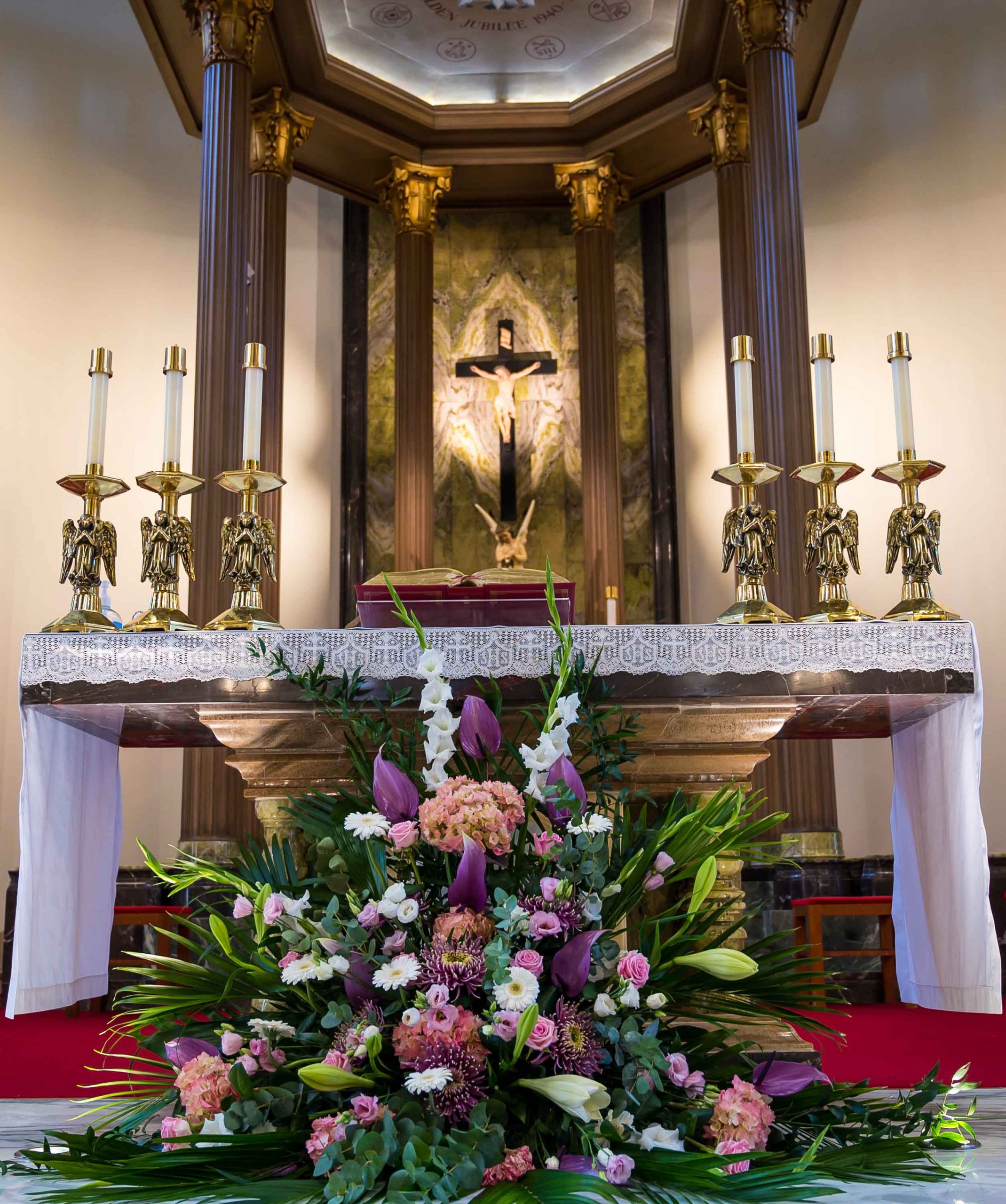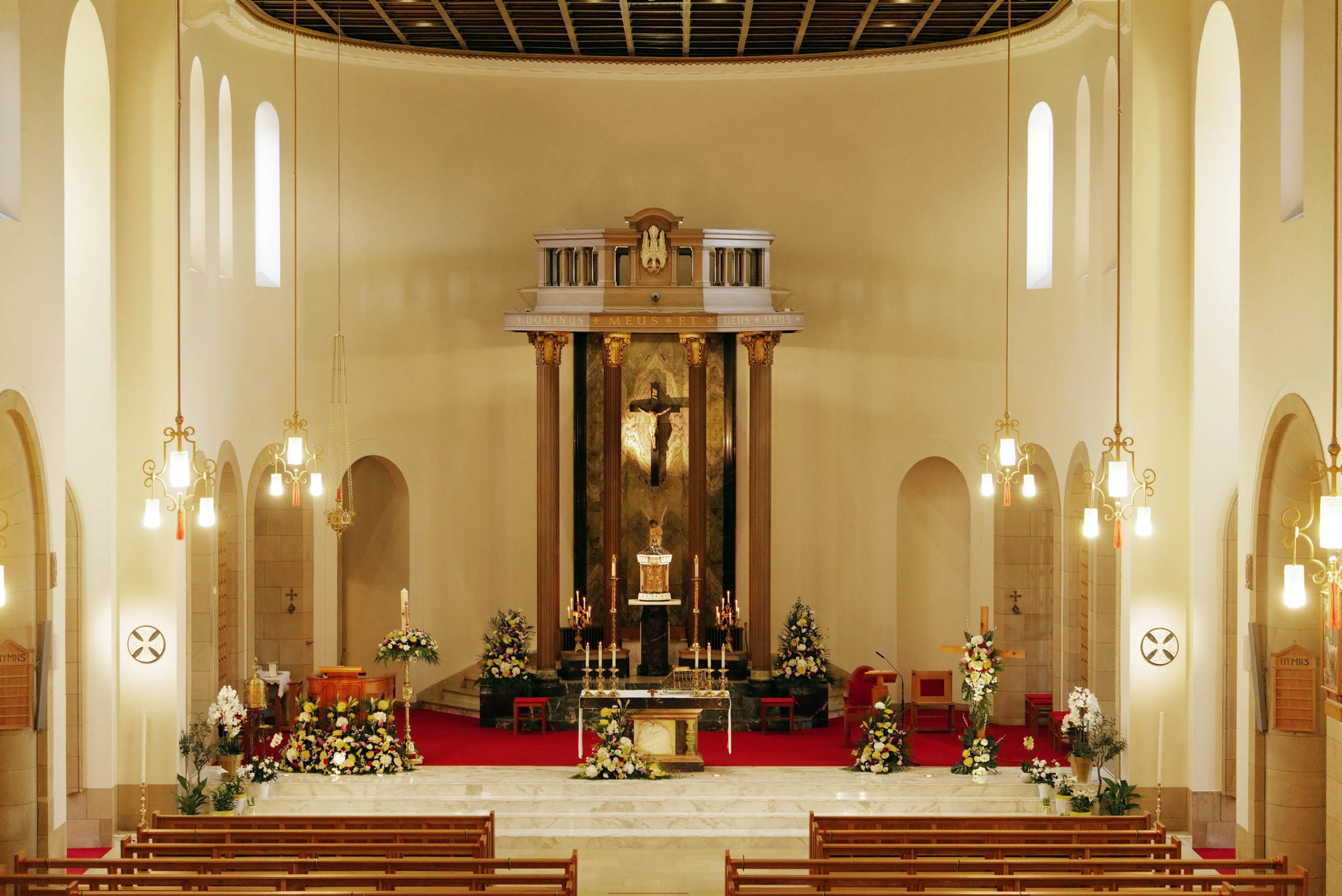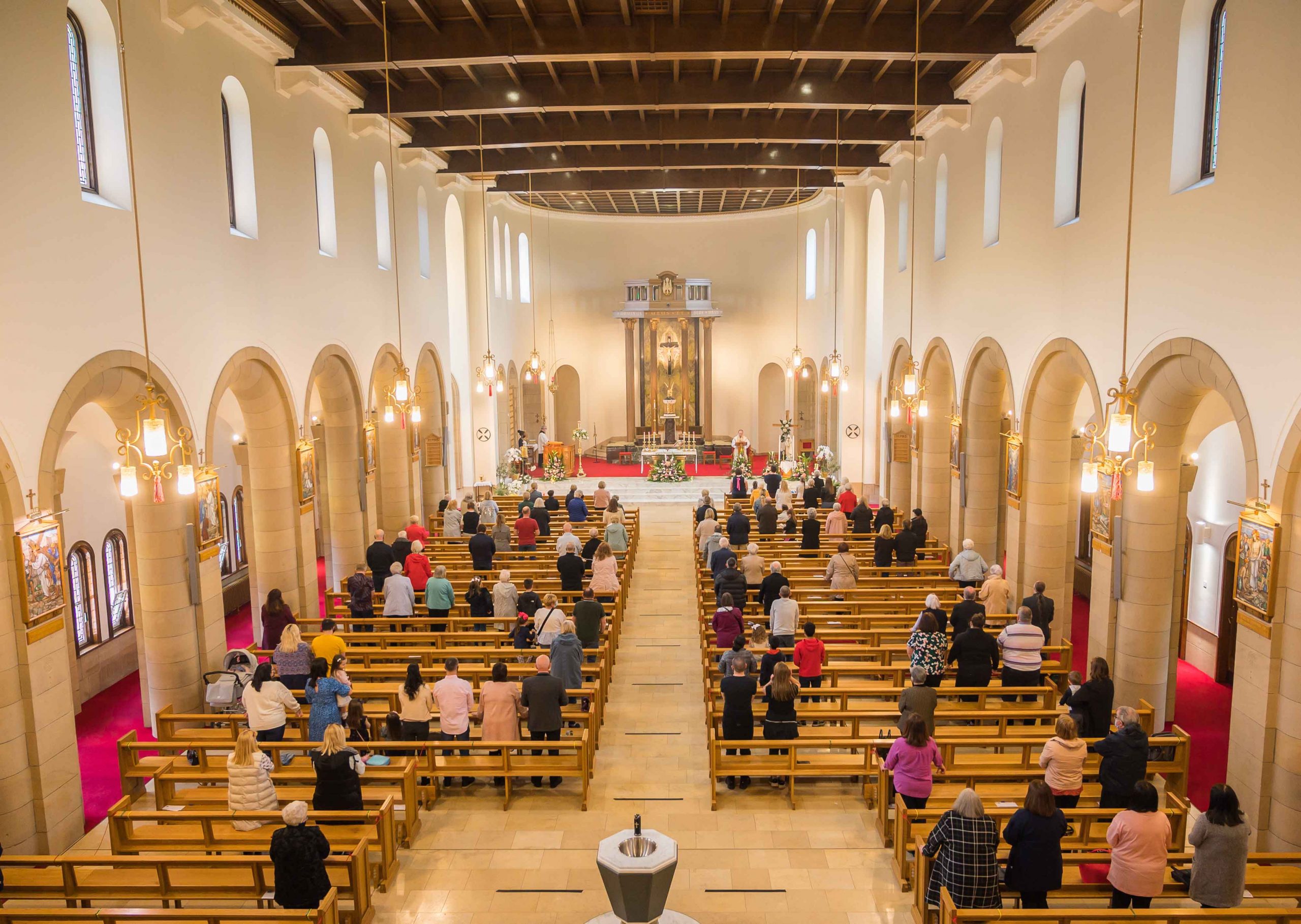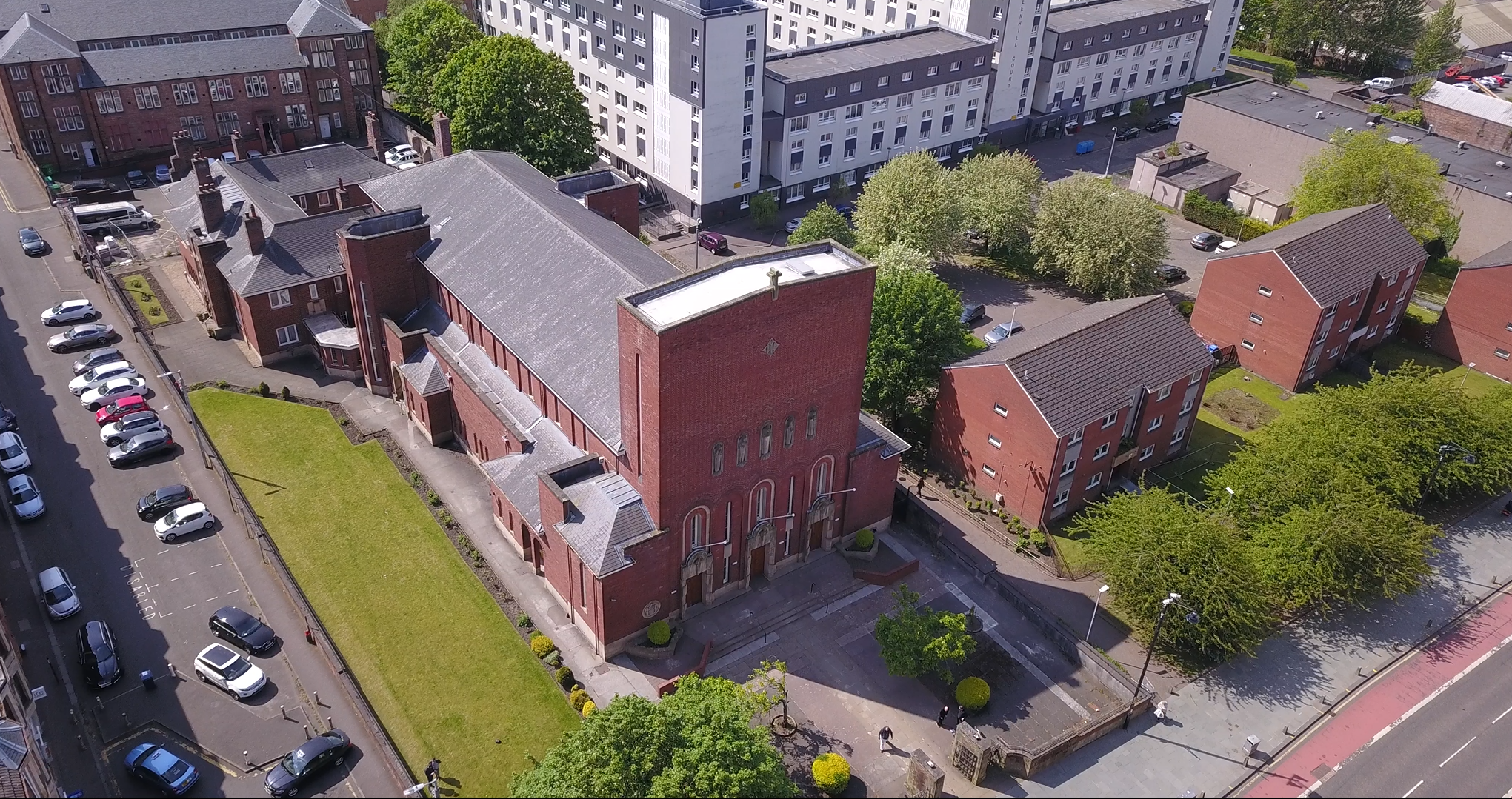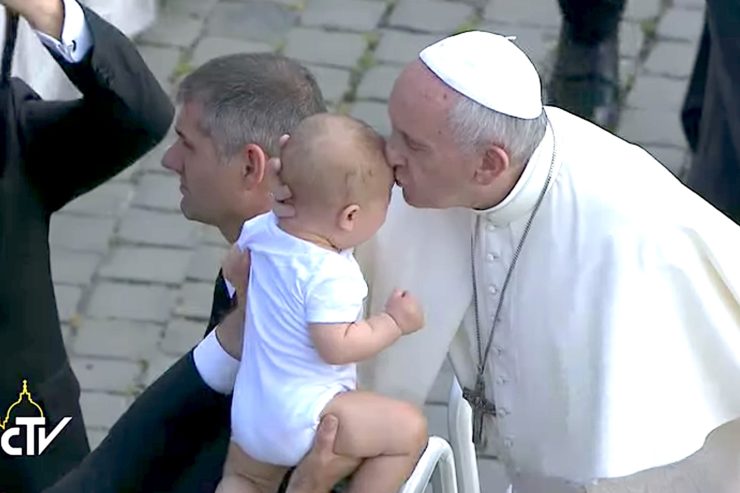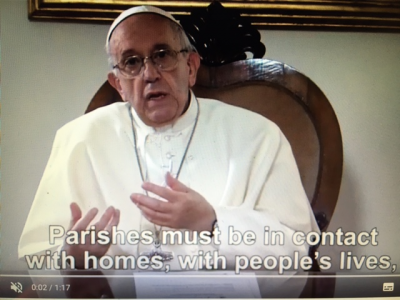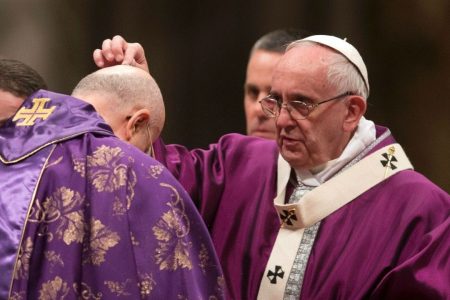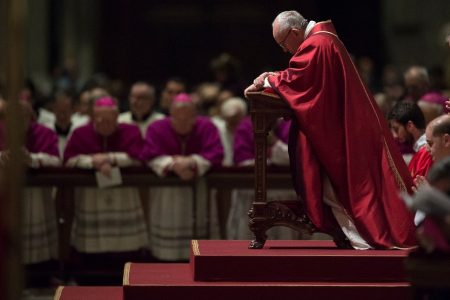Pope Francis: On Christian Hope, Enemies of Hope
We’re not alone in battling against despair. If Jesus has overcome the world, He is able to overcome in us all that is opposed to the good
The Holy Father’s General Audience was held at on Wednesday 27th September in St. Peter’s Square, where the Holy Father Francis met with groups of pilgrims and faithful from Italy and from all over the world.
In his address in Italian, the Pope reflected on the theme: “Christian Hope — The Enemies of Hope,” and then he addressed an appeal to the representatives of Caritas Internationalis, on the occasion of the opening of the Campaign “Let Us Share the Journey,” which was launched officially during the General Audience.
After summarizing his catechesis in several languages, the Holy Father expressed special greetings to groups of faithful present.
The General Audience ended with the singing of the Pater Noster and the Apostolic Blessing.
* * *
The Holy Father’s Catechesis
Dear Brothers and Sisters, good morning!
In this time we are talking about hope; however, today I would like to reflect with you on the enemies of hope, because hope has its enemies, as every good in this world has its enemies.
And there came to mind the ancient myth of Pandora’s box: the opening of the box set off so many disasters for the history of the world. Few, however, remember the last part of the story, which opens a chink of light: after all the evils came out of the mouth of the box, a miniscule gift seems to take revenge in face of all that evil that is spilling out. Pandora, the woman who is guarding the box perceives the last: the Greeks call it elpis, which means hope.
This myth tells us why hope is so important for humanity. It’s not true that “so long as there is life there is hope,” as is usually said. If anything, it’s the contrary: it’s hope that keeps life upright, that protects it, guards it and makes it grow. If men had not cultivated hope, if they were not supported by this virtue, they would never have comes out of the caves, and would have left no trace in the history of the world. It’s the most divine <thing> that can exist in man’s heart.
A French poet — Charles Peguy – has left us wonderful pages on hope (Cf. “The Portal of the Mystery of Hope”). He says, poetically, that God is not so astonished by the faith of human beings or by their charity, but what really fills Him with wonder and emotion is people’s hope: “That those poor children – he writes – see how things are going and believe that it will be better tomorrow morning.” The poet’s image recalls the faces of the many people that have passed through this world — peasants, poor labourers, migrants in search of a better future — that have fought tenaciously despite the bitterness of a difficult today, full of so many trials, encouraged, however, by the confidence that the children would have a more just and more serene life. They struggled for their children; they struggled in hope.
Hope is the thrust in the heart of one who sets out, leaving home, land, sometimes family and relatives – I think of migrants — to seek a better life, more fitting for himself and his dear ones. And it’s also a thrust in the heart of one who receives: the desire to encounter one another, to get to know one another, to dialogue . . . Hope is the thrust to “share the journey,” because the journey is done in two: those who come to our land, and we who go to their heart, to understand them, to understand their culture, their language. It’s a journey of two, but without hope that journey can’t be done. Hope is the thrust to share the journey of life, as Caritas’ Campaign reminds us, which we open today. Brothers, let’s not be afraid to share the journey! Let’s not be afraid to share hope!
Hope is not a virtue for people with a full stomach. See why the poor have always been the first bearers of hope. And in this connection we can say that the poor, also the beggars, are the protagonists of History. God had need of them to enter in the world: of Joseph, of Mary, of the shepherds of Bethlehem. On the night of the first Christmas, there was a world that was sleeping, comfortable in so many acquired certainties. However, the humble were preparing in hiddenness the revolution of kindness. They were poor in everything, some floated a bit above the threshold of survival, but they were rich in the most precious good that exists in the world, namely, the desire for change.
Sometimes, to have had everything in life is a misfortune. Think of a youth who was not taught the virtue of waiting and of patience, who hasn’t had to sweat for anything, who has forged ahead and at 20 “knows already how the world runs”: he is destined to the worst condemnation: that of not desiring anything more. He seems a youth; instead, autumn has already fallen on his heart. They are the young people of autumn.
To have an empty mind is the worst obstacle to hope. It’s a risk of which no one can say to himself that he is excluded, because to be tempted against hope can also happen when one is following the way of the Christian life. The monks of antiquity denounced one of the worst enemies of fervour. They said it thus: that “midday demon” that goes to extinguish a life of commitment, precisely while the sun burns on high. This temptation surprises us when we least expect it: the days become monotonous and boring, no value seems worthy of hard work anymore. This attitude is called accidia, which erodes life from inside until leaving it as an empty shell.
When this happens, a Christian knows that this condition must be combatted, never accepted supinely. God has created us for joy and happiness, and not to bask in melancholic thoughts. See why it’s important to guard one’s heart, opposing temptations to unhappiness, which certainly don’t come from God. And there, where our strength seems weak and the battle against anguish is particularly hard, we can always resort to Jesus’ name. We can repeat that simple prayer, of which we also find traces in the Gospels and which has become the foundation of so many Christian spiritual traditions: “Lord Jesus Christ, Son of the living God, have mercy on me a sinner!” – a beautiful prayer. “Lord Jesus Christ, Son of the living God, have mercy on me a sinner!” This is a prayer of hope, because I turn to him who can open wide the doors and resolve the problem, and make me look at the horizon, the horizon of hope.
Brothers and sisters, we’re not alone in battling against despair. If Jesus has overcome the world, He is able to overcome in us all that is opposed to the good. If God is with us, no one will rob us of that virtue of which we are in absolute need to live. No one will rob us of hope. Let’s go forward!
[Original text: Italian] {ZENIT’s translation by Virginia M. Forrester]

